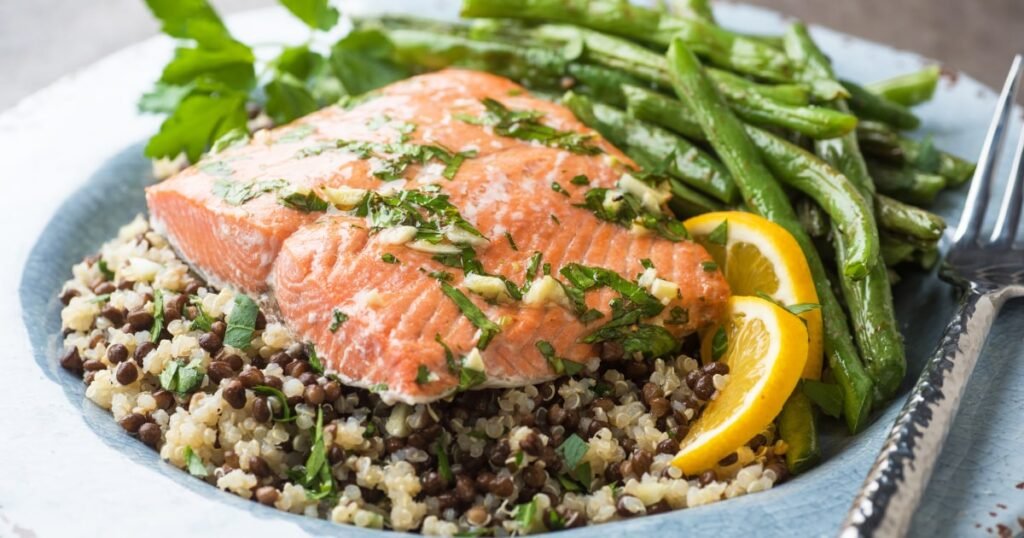Protein is an essential macronutrient that plays a crucial role in keeping the body strong, full, and energized throughout the day. It is made up of amino acids, which repair muscle and tissue, help build muscle, bones, and cartilage, and play a role in metabolic reactions and immune system health. Not consuming enough protein can lead to symptoms like muscle fatigue, difficulty building muscle, weak nails, dull hair, and frequent hunger. It is important to include high-protein foods in the diet to ensure optimal health.
The amount of protein a person needs daily depends on factors such as age, weight, sex, and activity level. The recommended dietary allowance (RDA) for protein is generally 0.8 grams per kilogram of body weight, but this can vary depending on individual circumstances. For older adults, pregnant or breastfeeding individuals, or those looking to build muscle, the protein needs may be higher. Working with a registered dietitian can provide personalized recommendations for protein intake based on individual needs and goals.
High-protein foods include lean meats, fish, eggs, dairy, beans, legumes, nuts, and seeds. Foods like chicken, turkey, salmon, tuna, lean beef, Greek yogurt, tempeh, cottage cheese, black beans, lentils, chickpeas, peanut butter, and flaxseeds are excellent sources of protein. Including a variety of these foods in meals can help meet daily protein requirements and provide essential nutrients for overall health and wellness.
Eggs are a versatile and nutrient-dense source of protein, with one large egg containing about 6 grams of protein. Lentils and chickpeas are plant-based sources of protein that also offer high amounts of fiber for digestive health. Nuts and seeds like almonds, pistachios, walnuts, and flaxseeds provide protein, healthy fats, and fiber in a convenient snack form. Meat alternatives like seitan and tofu are suitable for those following a vegetarian or vegan diet and offer substantial amounts of protein.
Incorporating high-protein foods into meals and snacks can help individuals meet their daily protein needs and support overall health and wellness. By choosing a variety of protein sources from both animal and plant-based options, individuals can ensure they are getting essential amino acids and nutrients to support muscle and tissue repair, metabolism, and immune function. Working with a dietitian to create a balanced meal plan that includes high-protein foods can help optimize health and performance.

